A ‘Birthright for Lesbians’: Park Slope’s Lesbian Herstory Archives Could Be Landmarked
The Renaissance Revival-style house at 484 14th Street houses the history “of a mostly unseen community of women who contributed to America’s cultural, political and social history.”

The Lesbian Herstory Archives building at 484 14th Street in Park Slope. Photo by Susan De Vries
The Renaissance Revival-style house at 484 14th Street contains much more than its historical finishes and period details: It houses the history “of a mostly unseen community of women who contributed to America’s cultural, political and social history,” and it should be landmarked because of that, the Landmarks Preservation Commission heard on Tuesday morning.
LPC held a public hearing Tuesday on designating the headquarters of the Lesbian Herstory Archives as an individual landmark (it is already part of the Park Slope Historic District), which, if successful, would make it the first LGBT site to be landmarked in Brooklyn.
LPC Deputy Director of Research Margaret Herman told commissioners the house is culturally significant as the home of the archives since 1991, “the nation’s oldest and largest collection of lesbian related historical material,” which was founded out of an Upper West Side apartment in 1974 by lesbian activists.
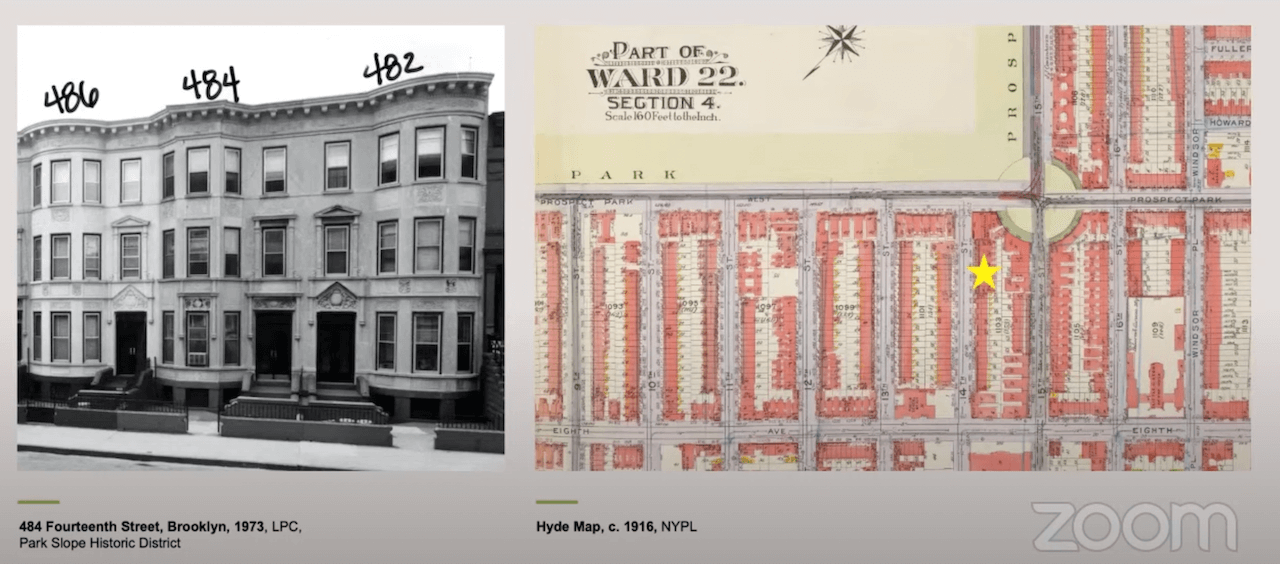
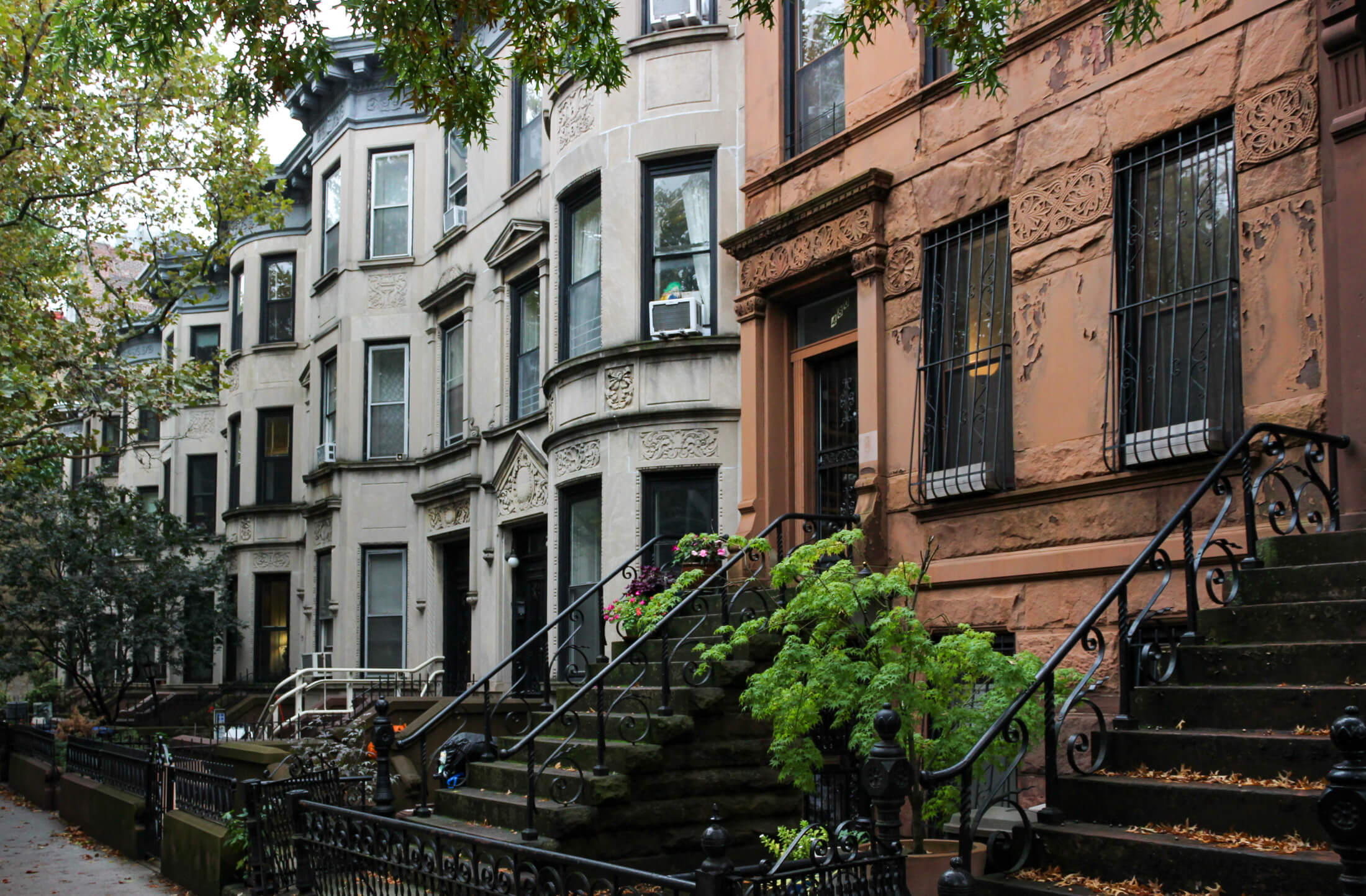
“At a time when the LGBTQ community faced widespread legal and social discrimination, the archives thought to bring lesbian cultural artifacts into public view and to normalize them as an integral piece of American history,” Herman said. She added the project was national in scope, intentionally feminist in nature and was inclusive of women of color.
For the past 30 years, the 1908 Axel Hedman-designed Park Slope house has been “a permanent headquarters that can serve as a direct response to the pervasive homophobia, sexism and lack of lesbian space that community had experienced throughout history,” Herman said.
Because the historic district’s 1973 designation predated the arrival of the organization, there’s no mention of the building’s LGBTQ significance in city records, Herman said. Designating it an individual landmark would allow for that recognition.
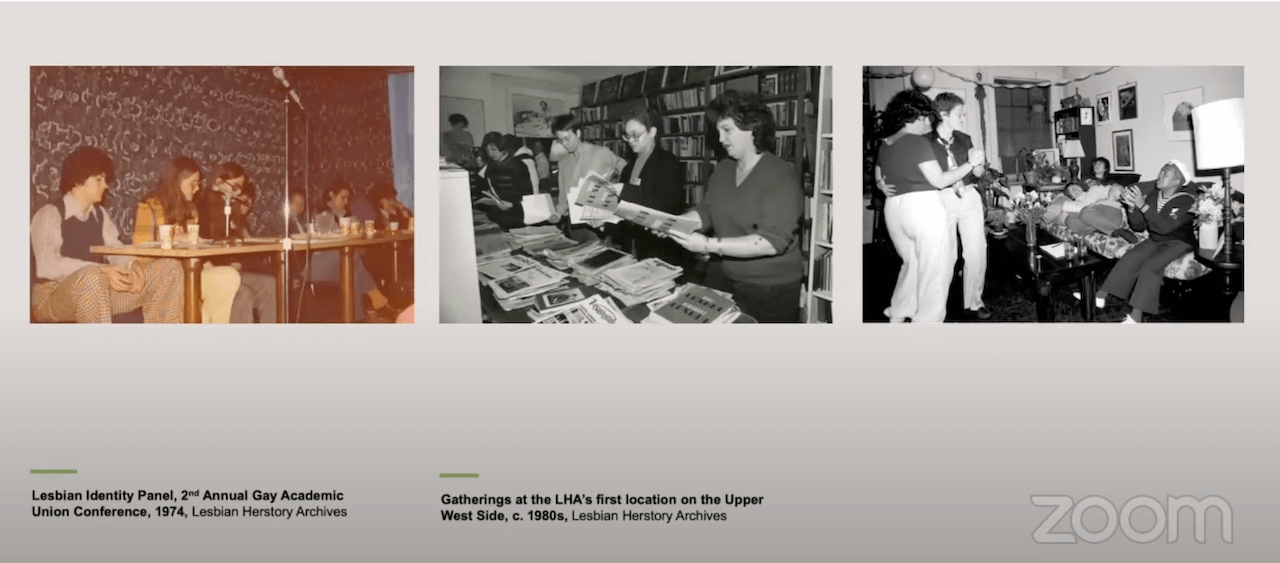
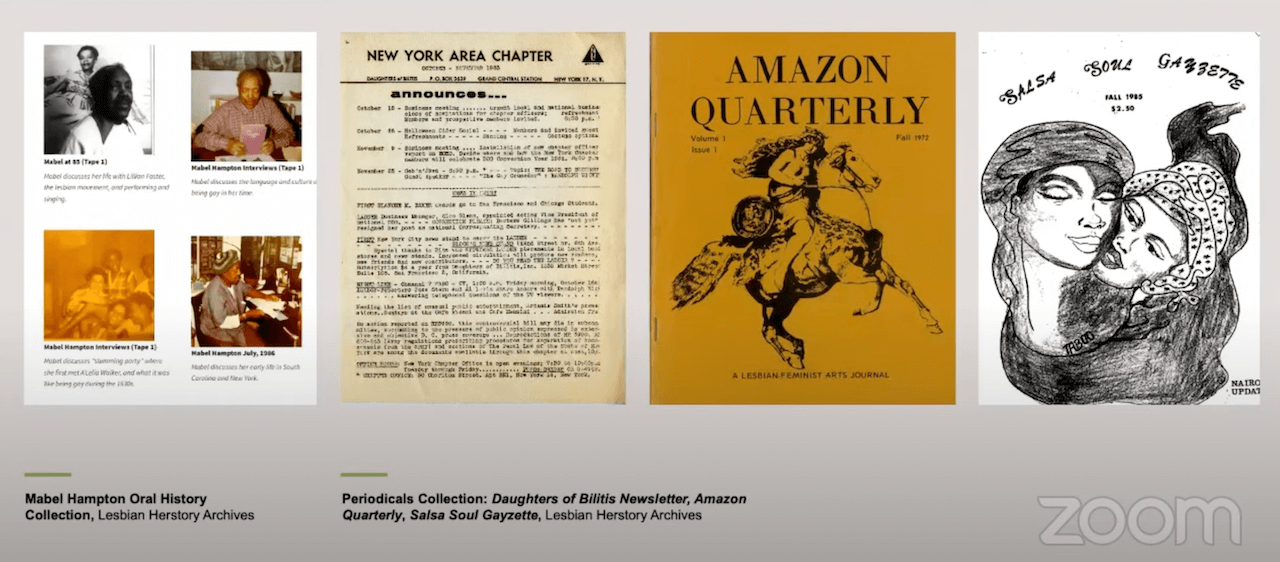
LHA coordinating committee member Colette Denali Montoya-Sloan told commissioners the building, owned outright by the nonprofit, is “intricately linked to lesbian life in New York City as the archival home of anyone who identifies as a former or current lesbian, or in any way with the word.”
“Most lesbians don’t inherit queer culture from our parents, the Lesbian Herstory archives is our birthright and it’s the place where we can go to learn our own history,” she said, adding that all are welcome to visit and research, not just lesbians.
Montoya-Sloan, who identifies as an indigenous queer woman, said the house was also a site of “repatriation” for Lenape lesbians. “The Lesbian Herstory Archives is committed to ensuring the preservation of indigenous lesbian and two-spirit materials and stories.”
Five others also testified in support of landmarking the house, including New York City journalist Elizabeth Daley who said LHA has “immense import to people in my profession, people who are doing research, people who want to know what was it like to live in a time before the Internet, for example, people who want to lay their hands on physical objects that belonged to people who were members of their community.”
She said preserving the space was especially important at a time when the city is experiencing the closure of many other LGBTQ spaces.
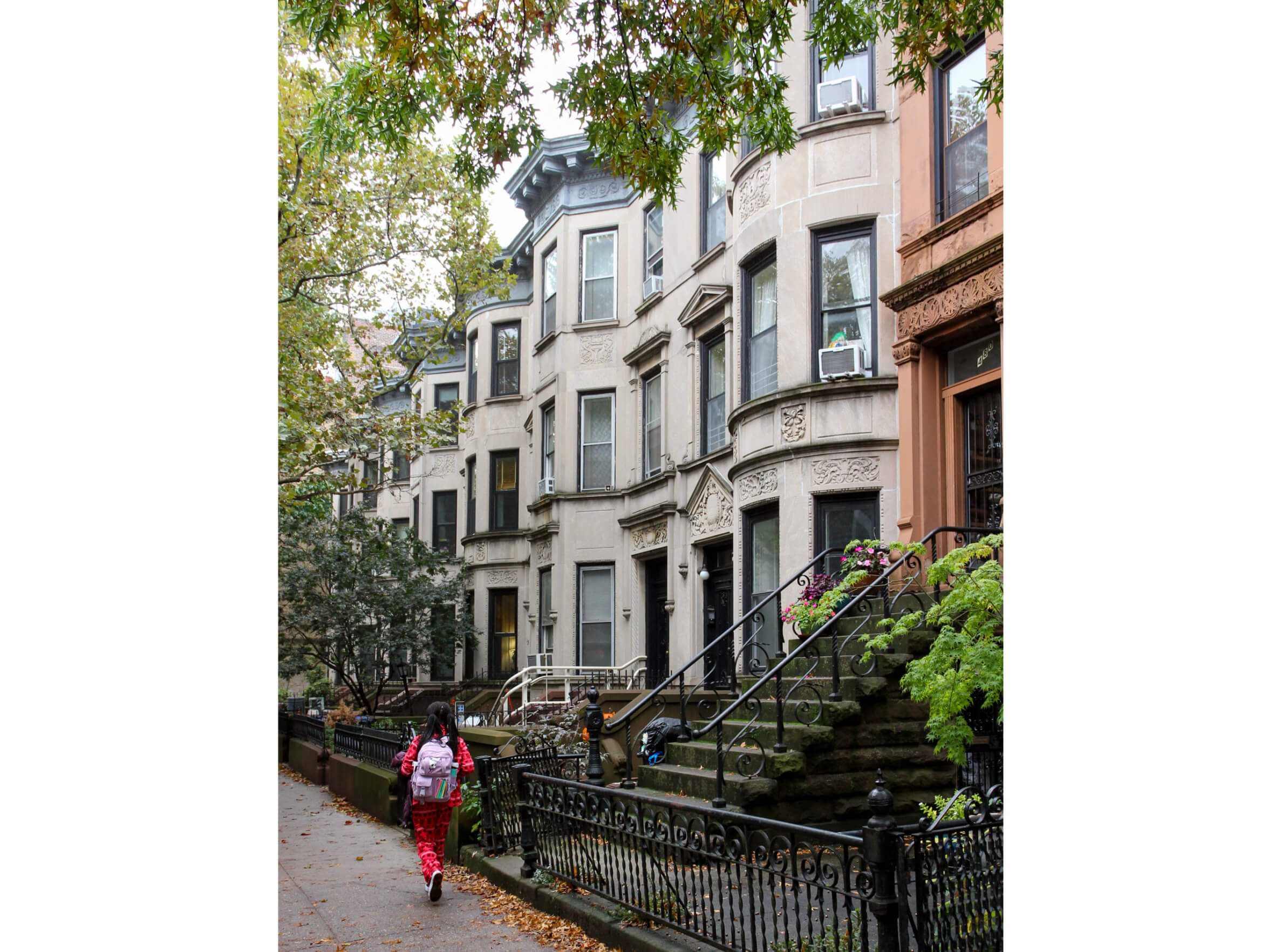
Amanda Davis, project manager of the NYC LGBT Historic Sites Project, said Lesbian Herstory Archives’ location in Park Slope speaks to the importance of the neighborhood in LGBTQ history.
“By the 1990s, Park Slope was popular with lesbians and their families as a place to live and find community, and several lesbian-associated groups and businesses, including the archives, operated there,” she said. “As a result, the designation of the Lesbian Herstory Archives building as a New York City landmark would also highlight and celebrate Park Slope’s historic significance to the lesbian community.”
Lucy Levine of the Historic Districts Council told commissioners the organization supports the cultural designation and hopes LPC continues to designate cultural landmarks across the city, “especially those sites that celebrate the history and culture of those communities less recognized by the LPC.”
On top of the testimonies, LPC received 25 letters on the designation, all of which were in support. LPC Chair Sarah Carroll said the commission would hold a vote on designation in the near future.
Related Stories
- As Pride Month Ends, LPC to Consider Designating Park Slope’s Lesbian Herstory Archives Row House
- Explore Brooklyn’s LGBT History at Six Historic Sites
- Could Walt Whitman’s Brooklyn Home Become a Landmark?
Email tips@brownstoner.com with further comments, questions or tips. Follow Brownstoner on Twitter and Instagram, and like us on Facebook.


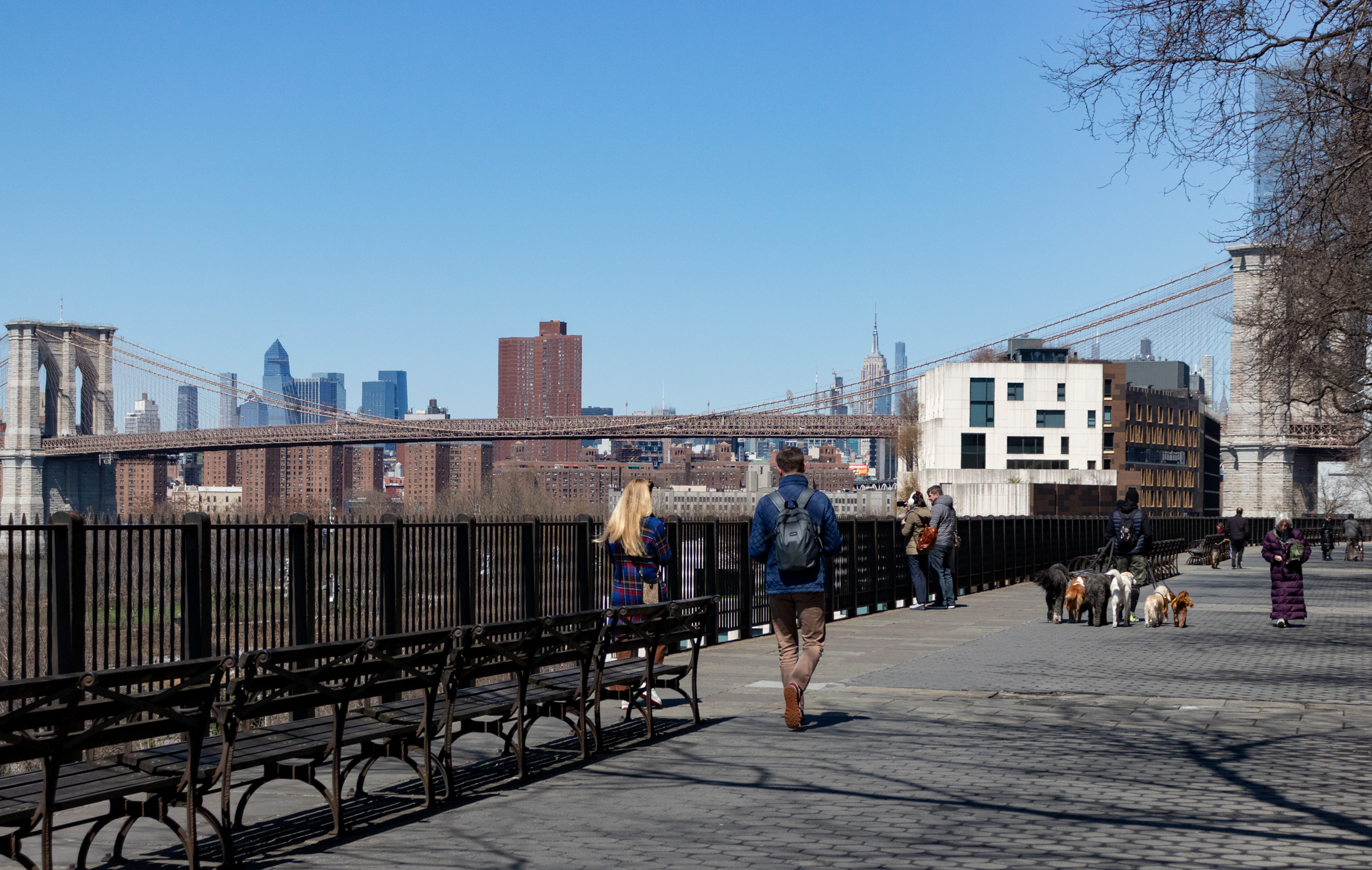

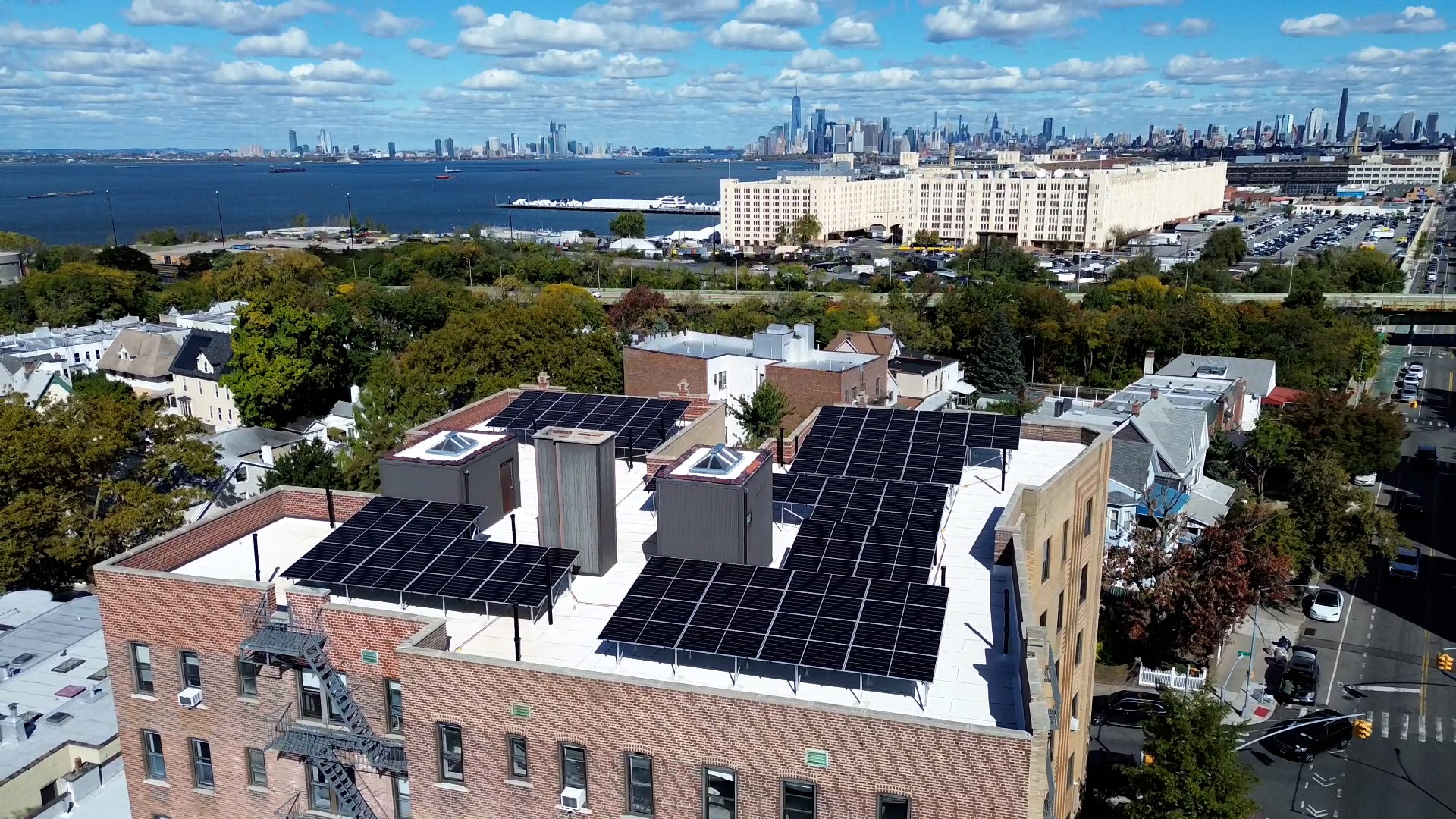
What's Your Take? Leave a Comment